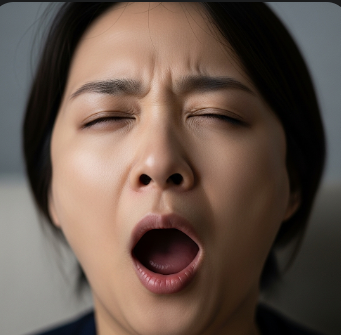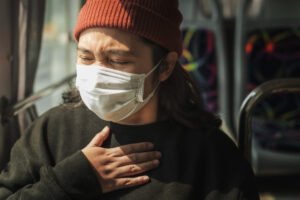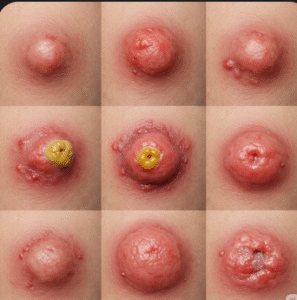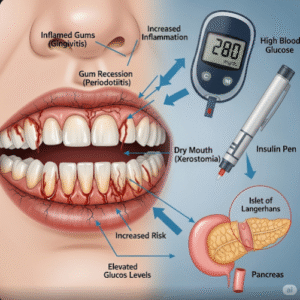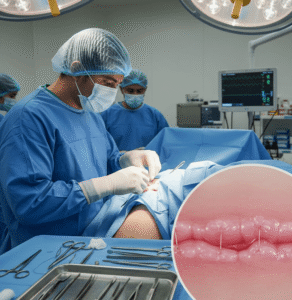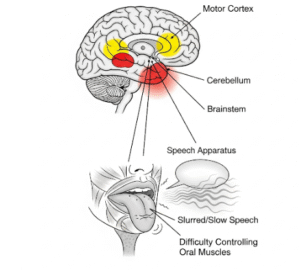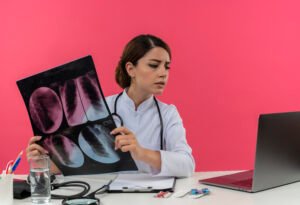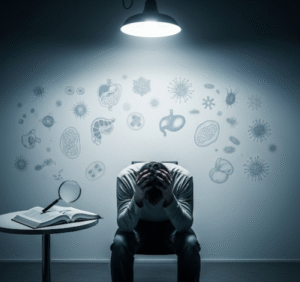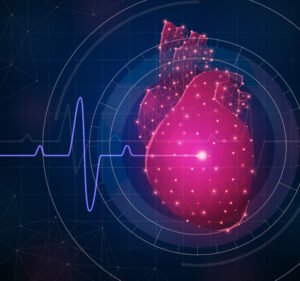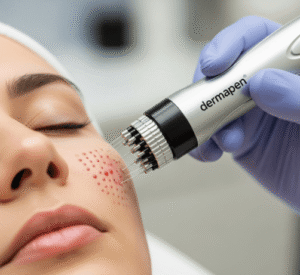➤ Overview
Sleepiness, also referred to as excessive daytime sleepiness (EDS), is a condition characterized by persistent drowsiness or an uncontrollable urge to sleep during the day. It can significantly impact productivity, cognitive function, mood, and overall quality of life.
In South Korea, sleepiness is evaluated by sleep specialists, neurologists, and pulmonologists using clinical assessments, sleep studies (polysomnography), and lifestyle evaluation. Early diagnosis is crucial to identify underlying sleep disorders, metabolic or neurological causes, and improve daily functioning.
➤ Key Facts
→ Sleepiness is more than just feeling tired; it indicates underlying sleep or health issues.
→ Commonly associated with obstructive sleep apnea (OSA), narcolepsy, insomnia, or restless leg syndrome.
→ In Korea, overnight sleep studies, actigraphy, and Epworth Sleepiness Scale evaluations are standard tools.
→ Chronic sleepiness can increase the risk of accidents, cardiovascular disease, obesity, and impaired cognitive function.
→ Lifestyle factors like shift work, irregular sleep schedules, and excessive screen time can exacerbate sleepiness.
→ Medical causes include anemia, thyroid disorders, depression, or medications.
→ Timely intervention improves daytime alertness, mood, and overall health outcomes.
➤ What is Sleepiness?
Sleepiness is the subjective feeling of needing sleep or an uncontrollable urge to sleep, often accompanied by reduced alertness, slower reaction times, and decreased concentration:
→ Excessive daytime sleepiness (EDS) – Persistent sleepiness despite adequate nighttime sleep.
→ Narcolepsy-related sleepiness – Sudden sleep attacks with potential muscle weakness (cataplexy).
→ Sleep deprivation-induced sleepiness – Resulting from insufficient or fragmented sleep.
→ Secondary sleepiness – Due to medical conditions, medications, or psychiatric disorders.
→ Idiopathic hypersomnia – Rare disorder causing extreme daytime sleepiness without clear cause.
Korean sleep specialists evaluate sleep patterns, underlying conditions, and lifestyle factors to differentiate normal tiredness from pathological sleepiness.
➤ What Symptoms are Related to Sleepiness?
Sleepiness may present with various associated symptoms depending on the cause:
→ Persistent drowsiness during the day even after a full night’s sleep.
→ Difficulty staying awake during meetings, reading, or driving.
→ Yawning frequently or feeling mentally sluggish.
→ Reduced attention, focus, and memory problems.
→ Mood changes, including irritability or depression.
→ Falling asleep unintentionally, sometimes in unsafe situations.
→ Nighttime sleep disturbances, including insomnia or frequent awakenings.
→ Headaches or fatigue secondary to poor sleep quality.
➤ What Causes / Possible Causes?
Sleepiness can result from sleep disorders, medical conditions, lifestyle factors, or medications:
→ Obstructive sleep apnea (OSA) – Airway obstruction causing fragmented sleep.
→ Narcolepsy – Neurological disorder with uncontrollable daytime sleep attacks.
→ Insomnia – Difficulty falling or staying asleep at night.
→ Restless leg syndrome (RLS) – Uncomfortable leg sensations disrupting sleep.
→ Sleep deprivation – Voluntary or due to work, study, or lifestyle habits.
→ Medications – Sedatives, antihistamines, or antidepressants.
→ Depression or anxiety – Psychiatric conditions affecting sleep quality.
→ Medical conditions – Hypothyroidism, anemia, diabetes, heart disease, or chronic pain.
→ Shift work or irregular sleep schedules – Circadian rhythm disruption.
→ Neurological disorders – Parkinson’s disease, multiple sclerosis, or brain injury.
➤ When Should I See My Doctor?
Medical consultation is essential if sleepiness is persistent, severe, or affecting daily life:
→ Uncontrollable urge to sleep despite sufficient nighttime sleep.
→ Falling asleep in dangerous situations, e.g., driving or operating machinery.
→ Loud snoring, gasping, or pauses in breathing during sleep.
→ Sudden sleep attacks or cataplexy (muscle weakness with emotion).
→ Significant mood, memory, or concentration changes.
→ Nighttime sleep disturbances – Insomnia, frequent awakenings, or restless legs.
→ Symptoms persist despite lifestyle adjustments, indicating potential underlying disorder.
➤ Care and Treatment
Management depends on cause, severity, and impact on daily life:
→ Lifestyle modifications – Consistent sleep schedule, regular exercise, and sleep hygiene practices.
→ Medications – Stimulants, wakefulness-promoting agents, or medications treating underlying sleep disorders.
→ Treatment of sleep apnea – CPAP (continuous positive airway pressure) therapy, dental appliances, or surgery.
→ Cognitive behavioral therapy (CBT) – For insomnia or stress-related sleep disturbances.
→ Addressing medical or psychiatric conditions – Managing anemia, hypothyroidism, depression, or anxiety.
→ Short naps and structured sleep planning – To improve alertness without disturbing nighttime sleep.
→ Monitoring and follow-up – Regular evaluation to assess improvement and adjust treatment.
→ Patient education – Awareness of triggers, sleep hygiene, and safe practices to prevent accidents.
➤ Treatment Options in Korea
South Korea offers comprehensive care for sleepiness, integrating diagnostics, medical therapy, and behavioral interventions:
Diagnosis in Korea
→ Polysomnography (overnight sleep study) – Evaluates sleep stages, breathing, and oxygen levels.
→ Multiple sleep latency test (MSLT) – Assesses daytime sleepiness and narcolepsy.
→ Actigraphy – Monitors sleep patterns over several days or weeks.
→ Blood tests – Detect anemia, thyroid dysfunction, or metabolic issues.
→ Questionnaires and scales – Epworth Sleepiness Scale or Pittsburgh Sleep Quality Index.
Medical Treatments in Korea
→ CPAP or BiPAP therapy – For obstructive sleep apnea.
→ Stimulants and wakefulness-promoting medications – For narcolepsy or severe daytime sleepiness.
→ Medications targeting underlying causes – Thyroid therapy, antidepressants, or iron supplements.
→ Behavioral therapy – Cognitive behavioral therapy for insomnia (CBT-I).
Advanced Therapies in Korea
→ Multidisciplinary care – Sleep specialists, neurologists, pulmonologists, and psychologists.
→ Lifestyle and wellness programs – Sleep education, stress management, and circadian rhythm optimization.
→ Surgical interventions – For anatomical causes of airway obstruction in sleep apnea.
→ Integrative approaches – Korean traditional medicine for supportive symptom relief.
Rehabilitation & Support in Korea
→ Guidance on sleep hygiene, daytime alertness, and safe activity planning.
→ Nutritional and lifestyle counseling to support energy and metabolic health.
→ Psychological support for stress, anxiety, or depression caused by chronic sleepiness.
→ Long-term monitoring to improve sleep quality, daily function, and overall health.

